- magyar
- english
- Русский
Debrecen University Symposium 1st Congress on Sustainable and Innovative Solutions in Agriculture and Food Industry – One Health approach
One Health is an integrated, integrative approach aiming to achieve a sustainable balance between human, animal, plant, and ecosystem health. It recognises that the health of people, domestic and wild animals, plants, and the wider environment (including ecosystems) are closely interlinked and interdependent. The approach involves multiple sectors, disciplines, and communities at different levels of society, and requires a harmonious and dynamic collaboration between them to address threats to well-being, health, and ecosystems. The aim is to combine the sustainable use of resources, clean water, energy and air to produce safe and nutritious food and to combat climate change.
The concept has recently taken on new meaning in light of the changing dynamics of interactions between humans, animals, plants, and our environment. Three changes, in particular, stand out:
1. Human populations are increasing and expanding into new geographical areas.
Thanks to this trend, many people now live in close contact with wild and domestic animals. Although these animals play a very important role in our lives, more human-animal contact means that animal diseases - known as zoonoses - are more likely to be passed on to humans. There are nearly 300 known diseases that affect both animals and humans. We have long understood that animal health is essential to safeguarding public health. According to the World Organisation for Animal Health (OIE), 60% of known infectious diseases in humans originate from animals (domestic or wild), as do 75% of emerging infectious disease-causing pathogens in humans.
2. Our planet is undergoing climate and land use change, leading to deforestation and more intensive livestock production.
Changes in environmental conditions and habitats may facilitate the transfer of diseases from animals to humans. Intensive livestock production has negative impacts on the environment and global human security. According to the UN Food and Agriculture Organization (FAO), livestock production produces more greenhouse gases than the worldwide transport sector. The impacts of intensive livestock production include deforestation, high water use, soil contamination with faecal matter (which releases antibiotics and other wastes into the soil), and ammonia from animal feed. In addition, the overuse of antibiotics in animals and the emergence of zoonoses are causing serious problems for human health. Deforestation has many negative effects on the environment. One of the most significant impacts is habitat loss, affecting millions of species. These species are forced to seek new niches closer and closer to human settlements, thus coming into contact with humans and increasing the risk of zoonoses.
3. The global movement of people, animals, and food has increased dramatically.
International travel has become much more frequent in recent decades, enabling the rapid, cross-border spread of vectors carrying diseases and pathogens worldwide. In our increasingly interconnected and interdependent world, an outbreak of an infectious disease in one country can become a major health emergency for the whole world (e.g. COVID-19). More human-animal contact means that animal diseases - so-called zoonoses - are more likely to be transmitted to humans.
The priority areas where the One Health approach is particularly needed are food safety, zoonoses and the fight against antimicrobial resistance.
At the Faculty of Agriculture, Food Science and Environmental Management of the University of Debrecen, our One Health activities are characterised by a holistic approach and systems thinking. We are carrying out significant activities to understand the symbiotic functioning of biological and technological systems in agriculture and food industry, which can be summarised as the added value of Digital Agriculture. These are:
- Increased "agility": real-time monitoring and forecasting systems
- Resource efficiency & green solutions: quantitative and qualitative improvements in production, greener and more climate-resilient processes due to more efficient input use
- Time and cost savings: automated operations (crop protection, irrigation, etc.)
- Product safety: traceability, food, and nutrition safety, logistics, ....
The motto of our Faculty: Integrated development and knowledge sharing to support competitive agriculture, ethical food production, and environmental sustainability.


